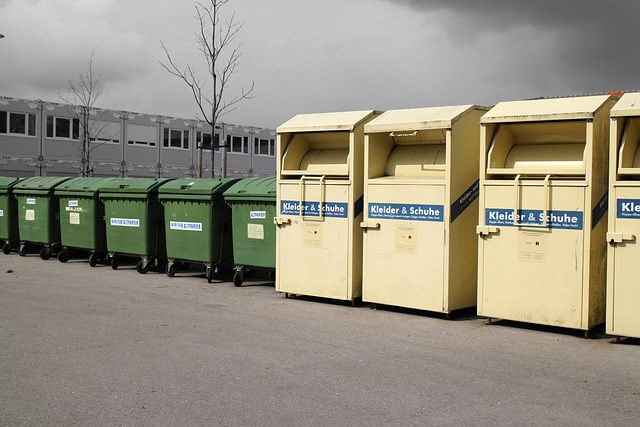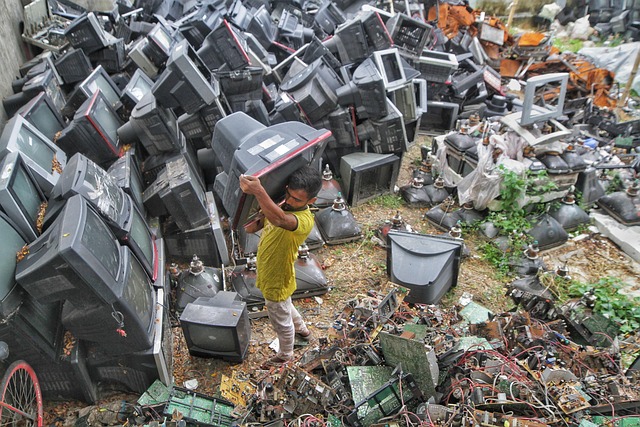Boston and New York City tackle e-waste challenges with robust recycling programs. They offer numerous local centers for convenient electronic waste drop-off, focusing on responsible management. Through dedicated facilities and community events, these cities transform e-waste into resources, reducing environmental impact and promoting a circular economy. Their initiatives serve as models for sustainable tech practices nationwide.
“In today’s tech-driven world, managing outdated devices responsibly is a pressing issue. This article explores the intricate topic of e-waste recycling in bustling metropolises like Boston and New York. We delve into the environmental impact of improper disposal, highlighting the dangers it poses to communities. Subsequently, we navigate effective recycling methods and introduce local centers dedicated to sustainable tech practices. By understanding the significance of responsible e-waste management, ‘folks’ can contribute to a greener future for Boston and NY.”
- Understanding E-Waste in Boston and NY
- The Impact of Improper Recycling
- Responsible Recycling Methods
- Boston/NY Local Recycling Centers
- Encouraging Tech Sustainability Practices
Understanding E-Waste in Boston and NY

In Boston and New York City (NY), the issue of electronic waste, or e-waste, is a growing concern due to the rapid pace of technological advancement and the influx of outdated electronics. Both cities have recognized the need for proper e-waste recycling to mitigate environmental impact and promote sustainable practices. In Boston, the hazardous waste collection schedule plays a vital role in ensuring residents can responsibly dispose of their old tech, including computers, phones, and batteries. Similarly, NYC has implemented innovative programs like e-waste management for businesses, allowing companies to recycle electronics in an eco-friendly manner.
Manhattan, a bustling hub within NY, occasionally hosts e-waste collection events, providing an opportunity for residents to safely recycle their electronic devices. These initiatives underscore the cities’ commitment to addressing the complex landscape of e-waste, transforming it from a potential environmental enigma into a manageable and beneficial resource through responsible recycling practices.
The Impact of Improper Recycling
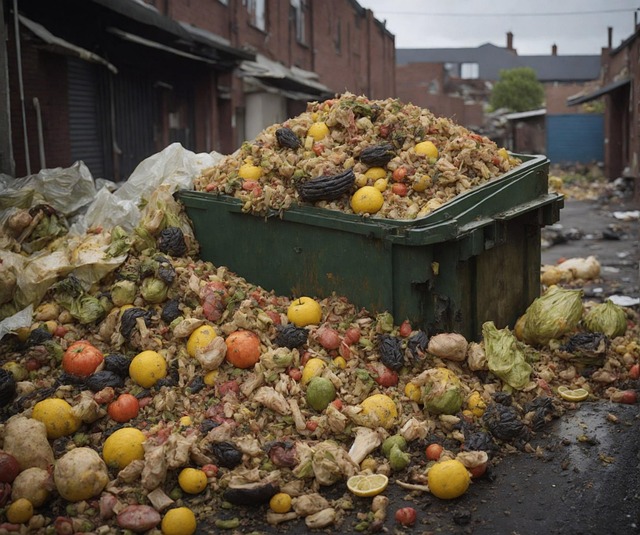
The improper disposal or recycling of outdated technology, commonly known as e-waste, can have severe environmental and health consequences, especially in densely populated areas like Boston and New York City. In these metropolitan centers, where bustling tech industries thrive, the accumulation of electronic waste is a growing concern. Many old devices, including computers, phones, and office equipment, end up in landfills or are incinerated, releasing toxic chemicals into the air and soil. This practice not only pollutes local ecosystems but also poses risks to nearby communities.
Boston NY e-waste recycling facilities play a vital role in mitigating these issues by providing secure and eco-friendly disposal methods. Manhattan’s green tech disposal centers, for instance, offer drop-off locations where residents and businesses can responsibly offload their outdated gadgets. Similarly, office equipment recycling programs in New York City ensure that valuable resources are salvaged from electronic waste, promoting a circular economy. By adopting these responsible recycling practices, Boston and New York can reduce their environmental footprint and contribute to a healthier future for their inhabitants.
Responsible Recycling Methods
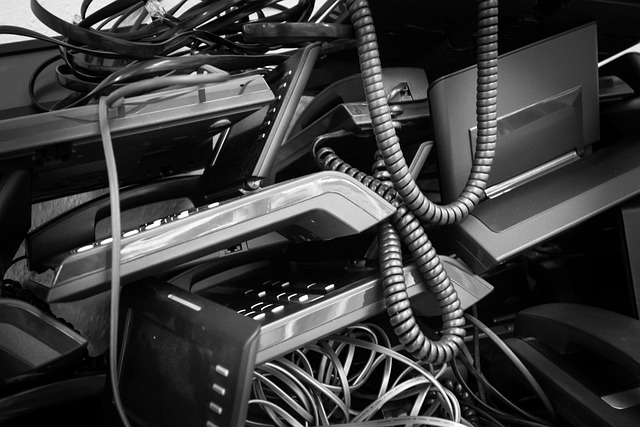
In the realm of responsible tech disposal, Boston and New York City stand out for their robust e-waste recycling programs. Boston’s local e-recycling businesses employ sustainable electronics disposal methods, ensuring hazardous materials are handled with care. These processes involve specialized techniques to disassemble devices, separate components, and recycle materials like metals, plastics, and glass responsibly.
New York City, with its bustling tech industry, has initiated comprehensive recycling initiatives that mirror Boston’s commitment. By partnering with certified e-recycling centers, NYC ensures that outdated technology is not merely disposed of but transformed into valuable resources. This circular approach not only minimizes the environmental impact of electronic waste but also contributes to a more sustainable future for both cities and beyond.
Boston/NY Local Recycling Centers

Boston and New York City are home to numerous local recycling centers dedicated to responsible e-waste management. For residents and businesses in these urban areas, these centers provide convenient ways to recycle outdated tech while minimizing environmental impact. Many of these facilities offer specialized services for small businesses and organizations looking to manage their electronic waste responsibly.
In Boston, for instance, there are several certified e-waste recycling centers that accept a wide range of electronics, from computers and phones to large appliances. Similarly, NYC has robust tech waste management programs, with numerous drop-off points and collection events specifically targeting residential and commercial e-waste. Manhattan’s data centers also play a crucial role in the city’s e-waste reduction efforts by adopting sustainable practices for disposing of old equipment, ensuring that valuable materials are reused or recycled responsibly.
Encouraging Tech Sustainability Practices
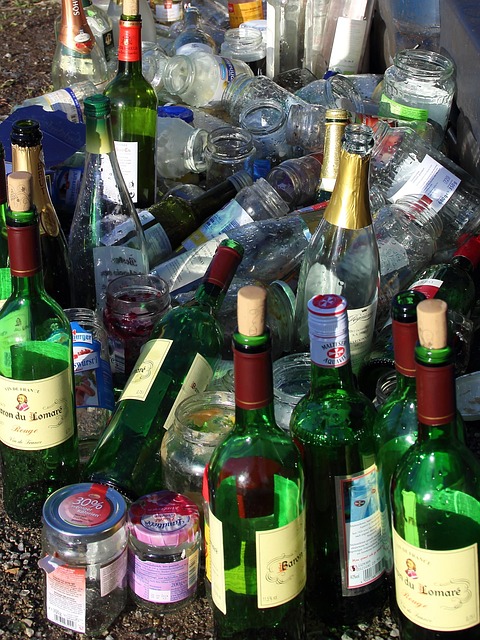
In today’s digital age, it’s crucial to encourage sustainable practices in the tech industry, starting with responsible e-waste management. Boston and New York City, as bustling metropolises, play a significant role in this initiative. The growing need for efficient Boston NY e-waste recycling has led to various innovative programs. For instance, many schools in Boston have adopted computer recycling initiatives, ensuring old devices are repurposed or reused, reducing the city’s electronic footprint. Similarly, NYC hosts large-scale computer recycling events, allowing residents and businesses to responsibly dispose of their outdated electronics.
These practices not only help minimize environmental impact but also contribute to a circular economy. Manhattan’s e-waste collection events have become popular, fostering a sense of community engagement in sustainable tech disposal. By promoting these initiatives, both cities set an example for others, encouraging individuals and organizations across the nation to adopt eco-friendly technologies and responsible recycling habits.
In light of the growing e-waste problem in urban centers like Boston and New York, responsible recycling practices are more crucial than ever. By understanding the impact of improper disposal and adopting sustainable tech habits, residents can contribute to a greener future. Utilizing local recycling centers and encouraging businesses to embrace eco-friendly policies can significantly reduce the digital waste that ends up in landfills. Let’s navigate towards a more sustainable technological landscape, ensuring that our outdated devices find new life while preserving our environment for generations to come.












